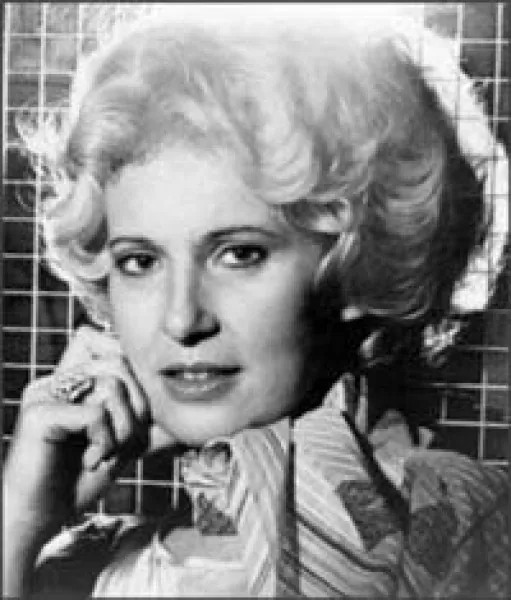
Tammy Wynette
Top Tammy Wynette albums
Top Tammy Wynette lyrics
(Merry Christmas) We Must Be Having One
Tammy Wynette(She's Just) An Old Love Turned Memory
Tammy Wynette(You Make Me Want To Be) A Mother
Tammy WynetteTammy Wynette biography
In many ways, Tammy Wynette deserves the title of "the First Lady of Country Music." During the late '60s and early '70s, she dominated the country charts, scoring 17 number one hits. Along with Loretta Lynn, she defined the role of female country vocalists in the '70s.br /br /After her father, who was a musician, died when she was just eight months old, Wynette was raised on her grandparents' home in Mississippi; her mother moved to Birmingham, AL, to do military work. As a child, Wynette taught herself to play a variety of instruments left behind by her father. When she was a teenager, she moved to Birmingham to be with her mother. At 17, she married her first husband, Euple Byrd, and set to work as a hairdresser and beautician. The marriage was short-lived, but it produced three children within three years. By the time her third child was born, the couple were divorced.br /br /Wynette's third child had spinal meningitis, which meant she had several expensive medical bills to pay. In order to gain some extra money, she began performing in clubs at night. In 1965, she landed a regular spot on the television program The Country Boy Eddie Show, which led to appearances on Porter Wagoner's syndicated show. The following year, she moved to Nashville, where she auditioned for several labels before producer Billy Sherrill signed her to Epic Records.br /br /"Apartment #9," Wynette's first single, was released late in 1966 and almost broke the country Top 40 early in 1967. It was followed by "Your Good Girl's Gonna Go Bad," which became a big hit, peaking at number three. The song launched a string of Top Ten hits that ran until the end of the '70s, interrupted by three singles that didn't crack the Top Ten. After "Your Good Girl's Gonna Go Bad" was a success, "My Elusive Dreams" became her first number one in the summer of 1967, followed by "I Don't Wanna Play House" later that year.br /br /During 1968 and 1969, Wynette had five number one hits -- "Take Me to Your World," "D-I-V-O-R-C-E," "Stand by Your Man" (all 1968), "Singing My Song," and "The Ways to Love a Man" (both 1969). In 1968, she started a relationship with George Jones which would prove to be extremely stormy. Beginning in 1971, Wynette and Jones recorded a series of duets -- the first was the Top Ten "Take Me" -- which were as popular as their solo hits. However, the marriage was difficult and the couple divorced in 1975; they continued to record sporadically over the next two decades.br /br /Throughout the '70s, Wynette racked up number one hits. In the early '80s, her career began to slow down. Although she still had hit singles, she didn't reach the Top Ten as easily as she did in the previous decade. That trend continued throughout the rest of the decade and into the '90s. Even though she didn't have as many hits as she had in the past, Wynette remained a respected star and a popular concert attraction. br /br /In the '80s, Wynette began suffering a variety of health problems, including inflammations of her bile duct. She was hospitalized several times during the mid-'90s before her d**h on April 6, 1998. ~ Stephen Thomas Erlewine, All Music Guide
